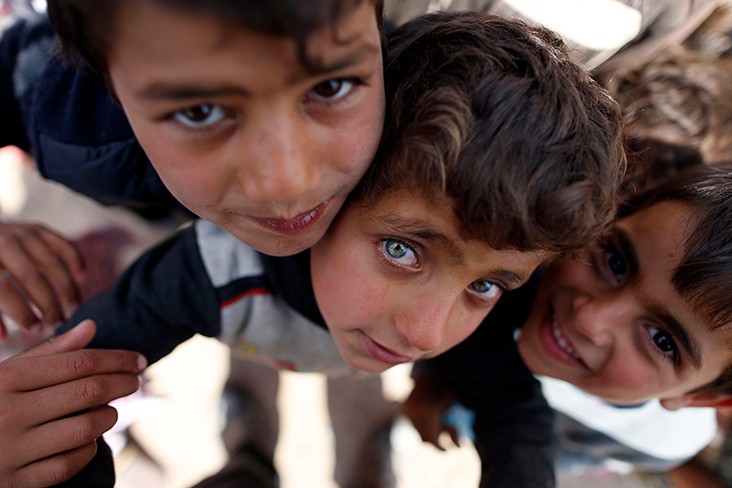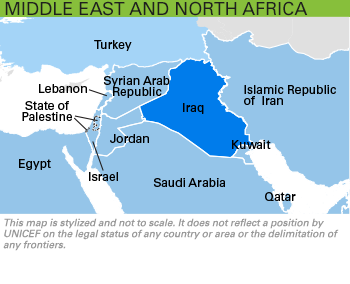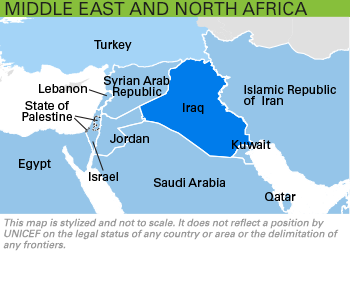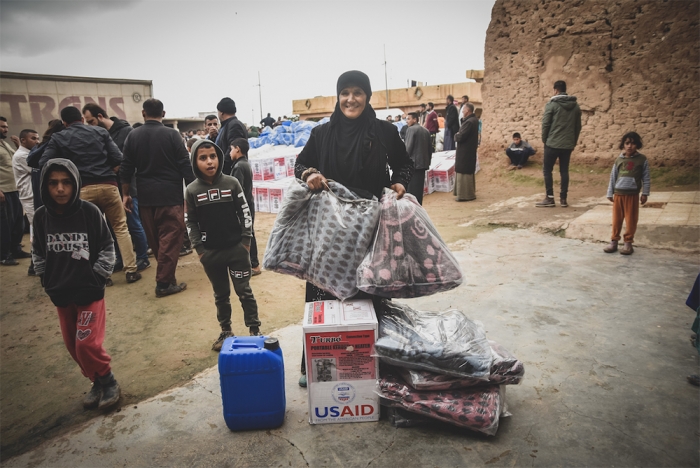Germany, IOM Strengthen Partnership for Evolving Humanitarian Response in Iraq
During the ISIL conflict, an estimated six million Iraqis were displaced.
Thousands of families have returned to their areas of origin since the end of the crisis, but unstable conditions in Iraq have caused a significant shift in the country’s humanitarian situation.
As country-wide camp consolidation and closure processes move forward, internally displaced persons (IDPs) are reckoning with the complex experiences of premature return and secondary displacement. Returnees residing in hotspots of severe living conditions and IDPs living in strained camps and informal sites are in urgent need of adapted humanitarian assistance.
As a part of its ongoing support for the International Organization for Migration (IOM) in Iraq, the Government of Germany will provide additional multi-year humanitarian funding that will better position IOM to adapt and rapidly implement its intervention strategy to address the evolving needs of the affected populations while remaining flexible to respond to sudden onset crises.
The latest grant from the German Federal Foreign Office (FFO) supplements an ongoing IOM Iraq project launched in March 2020. In addition to enhancing visibility, this multi-year humanitarian funding allows for longer-term planning and programme continuity. This is crucial, as remaining populations facing protracted displacement are in need of sustained assistance until solutions to their displacement are found.
“This funding from the German Federal Foreign Office is not only generous, it is flexible and will extend over the years to come,” said IOM Iraq Chief of Mission Gerard Waite. “This will enhance IOM’s capacity to pursue a holistic and sustained response to displacement that corresponds to the scope of urgent need in Iraq.”
The funding will be used to implement a broad range of humanitarian activities, from camp management in formal and informal sites to specialized, community-based protection and mental health and psychosocial support services both in- and out-of-camp. For those living in sub-standard or damaged shelters, funding will provide immediate relief solutions for improved safety, protection and living conditions. Interventions will also provide non-food item assistance and support primary health care centres to ensure accessibility and quality of essential services.
“Germany remains committed to the needs of internally displaced persons in Iraq. The broad range of individual IDP situations requires tailor-made solutions. We want to give partner organisations as much flexibility as possible so they can adapt to changing situations on the ground and live up to their ambition to deliver humanitarian assistance in accordance with priority needs,” said Chargé d’affaires Peter Felten (pictured) of the German Embassy in Iraq. “We are very happy to continue our partnership with IOM in this regard.”
Continuing support from the Government of Germany enables IOM Iraq to respond to pressing humanitarian needs while also working to determine root causes of and durable solutions to displacement, thereby facilitating the safe relocation or return and reintegration of IDPs into their communities.
(Source: UN)
The post Germany, IOM Strengthen Humanitarian Response in Iraq first appeared on Iraq Business News.






